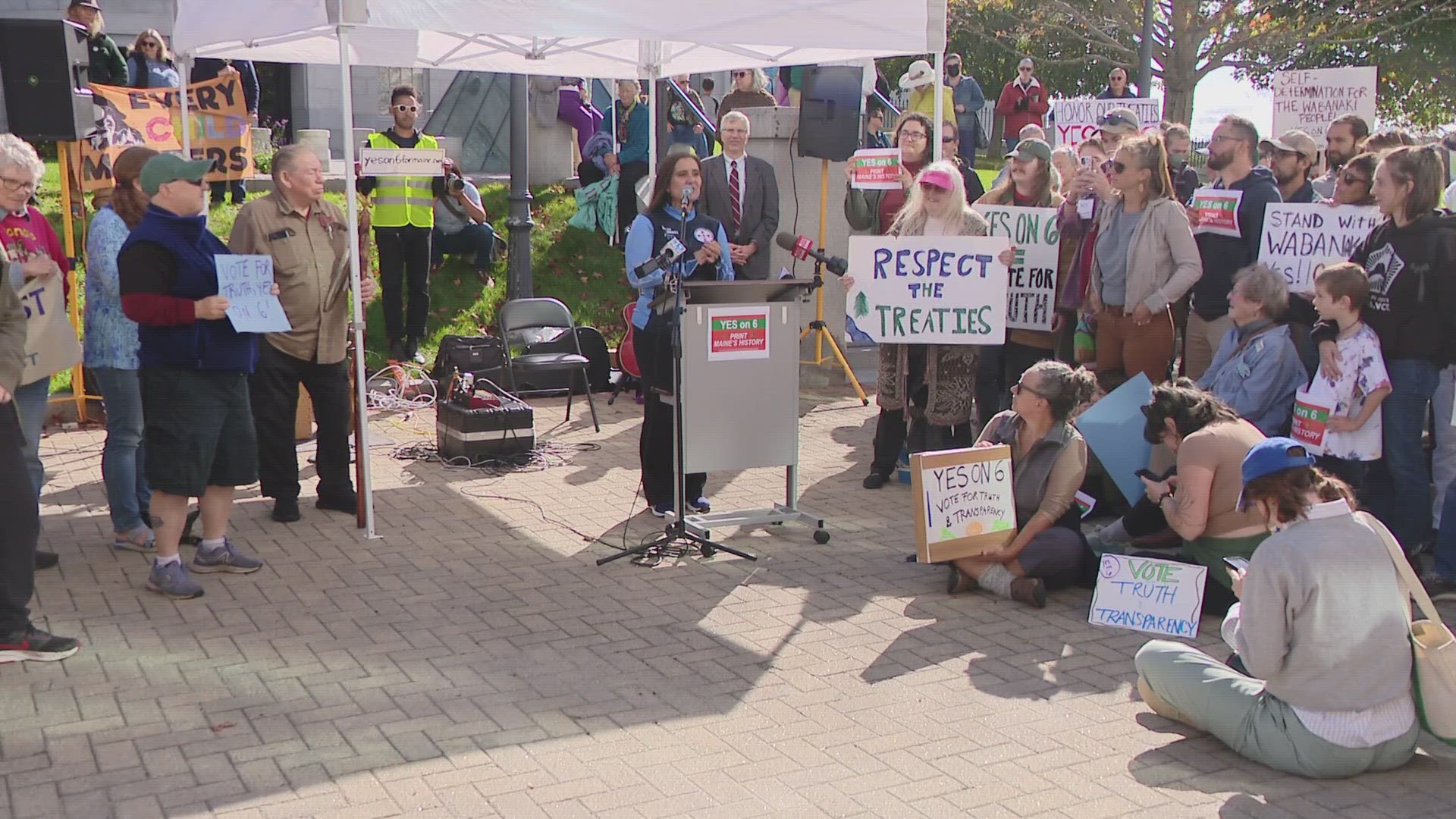AUGUSTA, Maine — More than 200 people rallied on the steps of the Maine State House Monday, urging people to vote "yes" on Question 6.
The ballot question stems from the long-omitted text in Maine's constitution stating Maine's obligations to the tribal nations. These provisions never went away in practice, but the text was removed in the late 19th century.
Filled with music and the brisk air of fall, people marched around the capitol, chanting "yes on six."
Maine's tribal leaders said the move is more than symbolic.
"If they're not in there, that makes us feel like we don't matter, that our ancestors' legacy and our history does not matter," Maulian Bryant said.
Bryant is the president of the Wabanaki Alliance.
Bryant spoke to the crowd, saying that while tribal leaders have made progress in gaining support around the state, there is more work to be done.
"Part of our work is hammering home what this education is really all about," Bryant said.
Earlier this year, some of the tribes' efforts to build tribal sovereignty failed. One of the largest was LD 2004, which would have allowed the Wabanaki Nations to benefit from the same federal laws that most tribes around the nation benefit from.
The bill made it through both chambers before being vetoed by Governor Janet Mills. Mills' administration also spoke in disapproval of Question 6 when it was first introduced in the State House as a bill, LD 78.
When contacted about this rally on Monday, Mills' administration said the Governor won't take a stance on Question 6, now that it is being left up to voters.
For other tribal leaders, like Vice Chief of the Mi'Kmaq Nation Richard Silliboy, the setbacks faced in Augusta could feel better if Mainers approve of Question 6.
"Of course it was disappointing, and it's going to continue to be disappointing," Vice Chief Silliboy said. "These are pieces of the constitution that will create better relationships between the tribes and the state."

